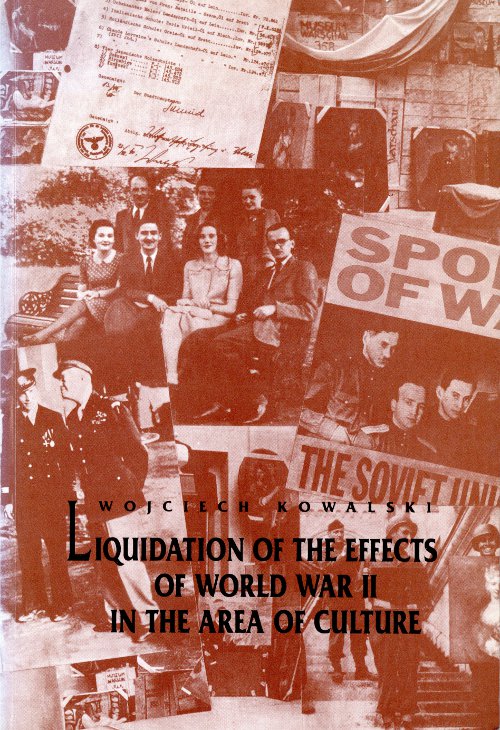- Kamunikat.org
- Бібліятэка
- Кнігазборы
- Калекцыі
- Іншае
Liquidation of the effects of World War II in the area of culture
In the recent years, Europe has experienced great political changes that challenged the Old Continent to build a totally new order in international relations. But at negotiations tables, it is clear that the regulations that will lay the legal foundations of the future must be accompanied by solving some lingering questions from the past. At least those that can still be solved. One of them is the question of the final liquidation of the effects of World War II on culture. Because of the Cold War and the totalitarian regimes in Central and Eastern Europe, this objective had no chance to be achieved. This fact is well understood in Germany, where the registration of cultural losses has been done for a long time now1, but also in Poland, Russia, Ukraine, Lithuania, Belarus and Hungary. In these countries similar work has been resumed after many years of neglect. Because of the time elapsed, this task is very difficult and complex — the need for arguments in negotiations conducted at the present moment make in the priority to establish lists of the lost works of art, libraries and archives. (Preface to English edition, fragment)
- Месца выхаду: Warsaw
- Дата выхаду: 1994
- Выдавец: Institute of Culture
- ISBN: 85-85323-81-3
- Катэгорыя: Гісторыя, Культура
- Copyright: © 1994 by Wojciech Kowalski
- Кнігазбор:
- EEDC — бібліятэка Усходнеэўрапейскага дэмакратычнага цэнтру, ul. Proletariacka 11, Białystok (папяровы асобнік)
- Інвэнтарныя нумары: EEDC — 2521
Пры выкарыстаньні матэрыялаў у Інтэрнэце прамая гіпэрспасылка на Kamunikat.org абавязковая.
Ідэя сайту Яраслаў Іванюк
